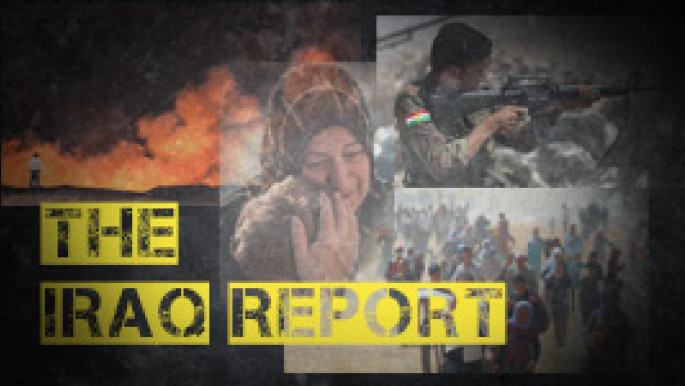Iraq election body ignored warnings over 'useless' voting-counting machines, report reveals
Iraq's Board of Supreme Audit (BSA) expressed concern about the vote-counting system in a report it sent to the Independent High Elections Commission (IHEC) on 9 May.
BSA said in the report that the IHEC had not responded to almost a dozen points it had raised, including contractual procedure and a failure to adequately examine the devices for any flaws.
"Hereby, we found that ignoring and not responding to the report's findings is considered a clear legal violation contributed to the passage of the electronic vote counting devices despite its unsuitability and easiness of being tampered," the BSA said.
The devices, provided by South Korean company Miru Systems under a deal with the IHEC, and blamed for the fraud, have led to a manual hand recount, the results of which are yet to be announced. Political leaders are still trying to form a government, with populist cleric Moqtada al-Sadr's heading the alliance that won the vote.
 |
|
| Catch up with our weekly round-up from Iraq |
The majority of concerns were raised over the results in the Kurdish province of Sulaimaniya and the ethnically-mixed province of Kirkuk, with suggestions the devices could have been tampered with or hacked.
The BSA report also referred to a letter from the Iraqi embassy in South Korea saying Miru Systems had assembled, but not manufactured, the equipment sent to Baghdad, and suggesting the price of the machines should have been lower.
A Miru official dismissed the assertion, insisting the company had made the equipment. He also said the "equipment does not lie" and that he and fellow employees had travelled to Iraq to examine the machines and found no evidence of hacking.
"We have checked our election device provided to Iraq after the fraud allegation erupted, and found out that there has been no malfunction in the device nor its system," he said.
Abdul Kareem Abtan, a member of a parliamentary fact-finding committee formed to investigate whether fraud was linked to the devices, said the committee had concerns about the system.
"The electronic vote counting devices were useless and completely not secure from tampering, and our conclusion was corroborated by results reached by a professional technical team from the Iraqi National Intelligence Service," he told Reuters.
Prime Minister Haider al-Abadi, whose alliance came third in the election, said on 5 June that a government investigation had found serious violations in the election and blamed the IHEC for most of them.
Parliament, mainly MPs who had lost their seats in the election, pushed and ordered the manual recount.
The political uncertainty has fuelled tensions at a time when public impatience is growing over poor basic services, unemployment and the slow pace of reconstruction after a three-year war with IS which cost tens of billions of dollars.
The southern city of Basra was the epicentre of protests which also spread to Baghdad.
Miru's electronic voting machines have come under scrutiny elsewhere, including in the Democratic Republic of Congo (DRC), where the opposition has raised concerns before an election scheduled for December.
Click here to receive The Iraq Report each week in your inbox
![Iraq vote [getty] Iraq vote [getty]](/sites/default/files/styles/large_16_9/public/media/images/4B367AFC-CD3F-41A7-A41D-2F468EE019F1.jpg?h=d1cb525d&itok=OctZpLoy)


